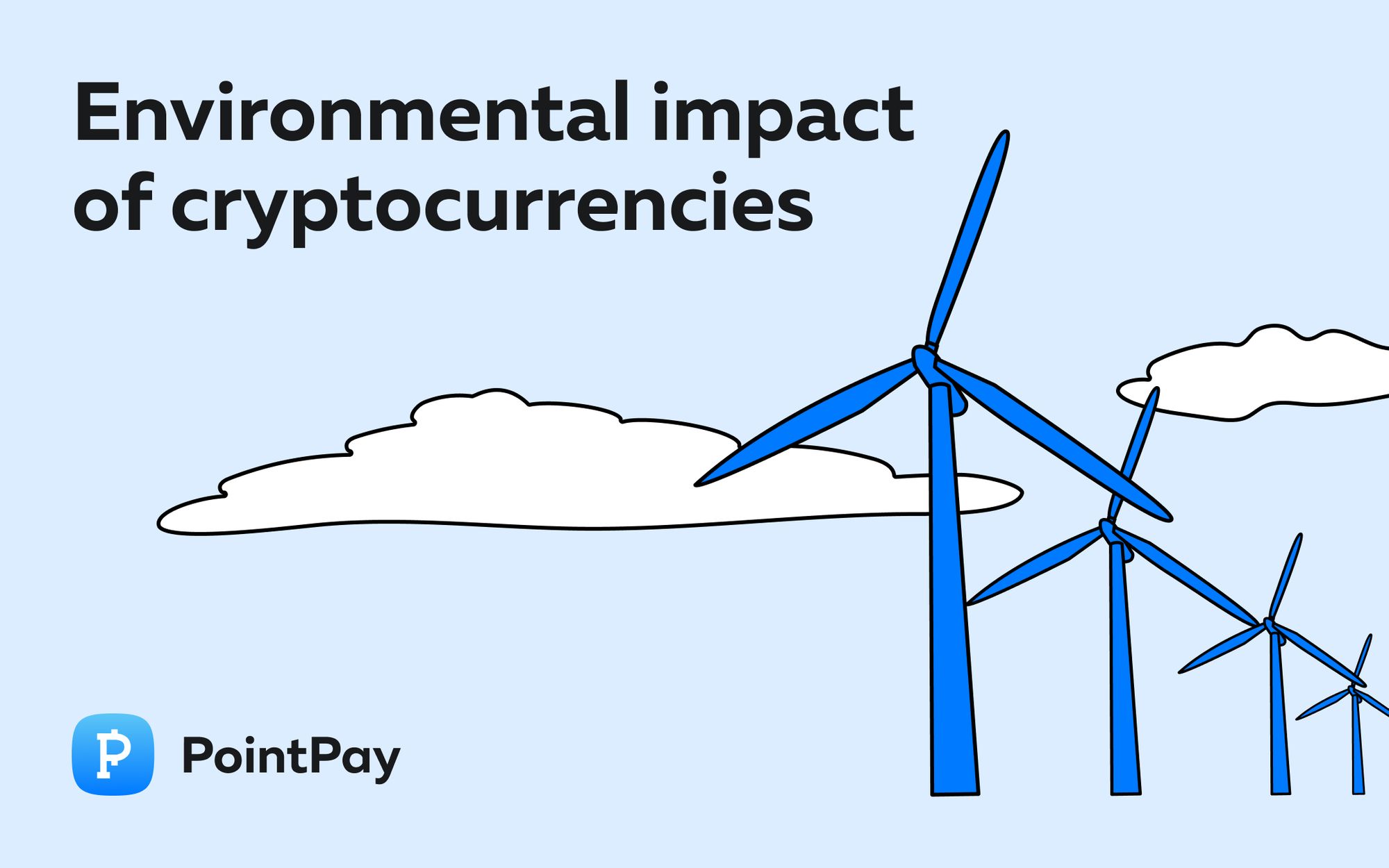Cryptocurrencies are a widespread phenomenon. In 2011, the price of one Bitcoin was only $1. Last April, it reached an all-time high of almost $65,000, and as of writing this article, each BTC is worth about $41,000. Some crypto investors were able to make a fortune overnight; more people are intrigued by the possibility of striking it rich through investing in Bitcoin, Ethereum, and other altcoins. Unfortunately, according to so many reviews, the crypto industry's popularity may make it impossible for the world to stave off the impacts of climate change.
Even though cryptocurrency was initially seen as a greener alternative to traditional currencies, energy consumption is enormous. Environmental implications are far-reaching. However, some experts write reviews about the environmental impact of crypto and believe that if done right, it might be possible to significantly reduce energy consumption.
Environmental issues and cryptocurrency
The debate about the environmental impact of cryptocurrencies is growing. The energy use is increasing, and it annually consumes as much energy as, for example, some Scandinavian countries. Bitcoin is incredibly energy-intensive; it comes with associated pollution, including carbon emissions.
The main environmental impact comes from the energy-intensive activities used for each transaction and crypto mining.
It is estimated that each Bitcoin transaction uses around 2000 kWh, which is almost what an average US household consumes in about 50-60 days. Some cryptos can generate excessive greenhouse gas emissions when this energy is supplied from non-renewable energy sources. Bitcoin's annual carbon footprint is comparable to the release of almost 100 megatonnes of carbon dioxide. It can be compared to the yearly emissions of Argentina, the United Arab Emirates, or Vietnam.
However, cryptocurrency's environmental impact is still much less than that of the financial and banking sectors. Unbelievable but fact: Bitcoin uses less than half as much energy as the entire banking system.
The wild card in this discussion is that non-renewable energy (think fossil fuels) are inevitably on their way out. It might be sooner or it might be later, but renewable energy is on the rise, even to the extent that investors are starting to notice. Numbers don’t lie. Over the decade just completed, top renewable energy stocks outperformed their fossil fuel counterparts. If this trend continues, the cryptocurrency vs energy problem can’t help but become less of a problem. It already is in some industries.
Even though Bitcoin is harmful to the environment due to the energy-intensive proof-of-work process, there are also other cryptocurrencies that have nothing to do with mining. In some crypto reviews, we can find information about Cardano (ADA), one of the most environmentally sustainable blockchains, an eco-friendly and feeless digital currency Nano (XNO), Chia Network (XCH), and others. Unbelievable but fact: Bitcoin uses less than half as much energy as the entire banking system.
Furthermore, Ethereum, the second-largest coin by market capitalization, has also hinted at changing its PoW system to a PoS one. It will randomly choose one person at a time to solve the block. Therefore, it should reduce energy consumption by almost 99%.
It is impossible to accurately calculate the damage that crypto mining causes to nature and ecology. Nevertheless, cryptocurrencies also have so many positive effects.
Cryptocurrency is:
- financial independence from the state;
- a means of saving investments during periods of economic crises;
- money of the future.
It's not as if only crypto mining harms our environment. It is more logical to talk about the generally negative impact of modern technologies.
Final thoughts
Using energy is something inevitable. The point is to become more efficient and environmentally friendly. Bitcoin, Ethereum, and other cryptocurrencies are working hard to achieve both goals. They are probably the most prominent green and renewable energy promoters.
Bitcoin can consume more electricity than, for example, Argentina or Venezuela. However, in such countries, most of it comes from so-called "dirty" sources. In addition, their economies do not have a strong impact on the global economy, as Bitcoin does. Cryptocurrency makes the financial world more efficient, secure, and transparent.
Start your exciting crypto trading journey with PointPay!
🔥 Buy PXP tokens on Bittrex: https://bit.ly/32VWsci
🔥 Buy PXP tokens on Bitrue: https://bit.ly/3JEreHu
🔥 Buy PXP tokens on BitHumb: https://bit.ly/3qOK6e9
🔥 Buy PXP tokens on WhiteBIT: https://bit.ly/3qJrjRH
💰 Earn up to 20% yearly with PXP staking program in PointPay Bank: https://bank.pointpay.io/staking
💡 Check PointPay Live-Roadmap (PointPay development in real-time): https://pointpay.io/live-roadmap/
🏦 Remember, we are PointPay, and we are beyond banking!
